Why do you need sewage ventilation, and how to properly
Many ordinary people today underestimate the importance that ventilation of the sewage of a dwelling house provides for the comfort of home life, and sometimes even erroneously refuse its arrangement. In this article we will dispel all doubts about the need for its installation, as well as consider the basic rules for its implementation.
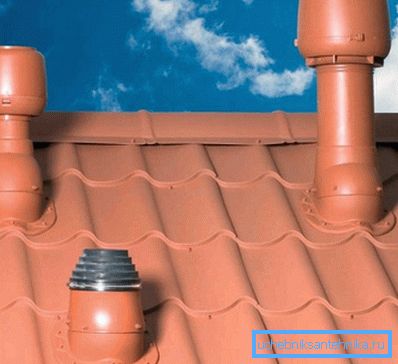
The reasons for installing sewer ventilation
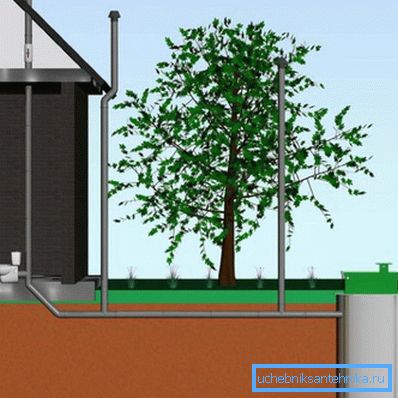
There are really not so many reasons, but they are weighty enough to spend some resources and efforts to create this design with your own hands:
- At the summer cottage, a septic tank or sewer well acts as a wastewater collector. The gases accumulating in them are toxic and even explosive, so their concentration should be reduced, otherwise at the moment when you are going to clean it, tragedy can happen.
- The next problem is less catastrophic, but much more urgent - it is an unpleasant smell from the plumbing fixtures. Of course, the main function of preventing their penetration into the living quarters is carried out by water gates, but the air discharged from the feces evaporates water in the “knee”, and the simultaneous use of the bathroom and the toilet draws it out like a huge syringe, after which the stench fills your house.

So if the price of your comfort is higher than the cost of several plastic pipes and some effort, then proceed to the installation.
Installation guidelines and guidelines
Ventilation from sewer pipes in a private home is relatively easy to install. You will need the already mentioned pipes, auxiliary tools that you will probably find in your farm, a little patience and the exact fulfillment of the basic conditions:
Important nuances
- The outlet of the pipe should be brought above the roof of the house at least one meter.. Only then:
- Water will not leave the seals, performing its function of the water valve.
- At the time of draining will not form a tube of air.
- The house does not penetrate the specific flavors.
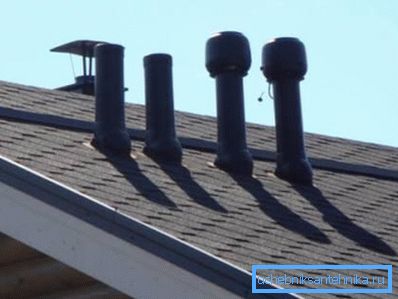
Tip: Do not place the pipe under a roof shed. In winter and spring, snow masses and ice are possible to descend, which are quite capable of damaging plastic.
- If one common ventilation system is displayed, then pipes with a diameter of 110 mm will do.. If for each bathroom separate conclusions are made, then the following table will help in choosing the right size:
| Sewer drain point | Minimum pipe section, mm |
| Sink for washing | 32 |
| Bath | 45 |
| Floor drain | 65 |
| Washer | 40 |
| Dishwasher | 40 |
| Sink for dishes | 40 |
| Combined washing or dishwasher drain with sink siphon | 50 |
| Laundry | 40 |
| Shower | 40 |
| Toilet | 100 |
- Ventilation of the sewer riser should not end with a cap, as due to the resulting condensate underneath, ice plugs may appear.

Tip: keep the distance from the ventilation exit to the nearest windows, which should be at least four meters. Otherwise, odors may leak into the building during airing.
- Is it possible to use sewer pipes for ventilation? Of course, since they have tangible benefits:
- Low cost. Allows you to spend extra money on the arrangement of other more capricious zones of your site.
- A wide range of sizes, ramifications, transitions, knees. It greatly facilitates the assembly and makes it optimal.
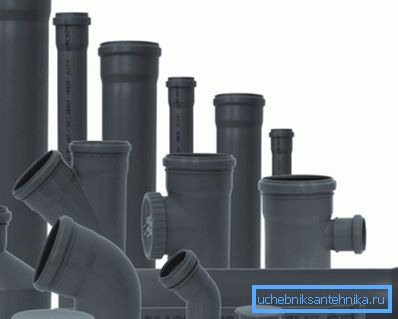
- Light weight simplifies installation work, especially at roof heights.
- Absolute moisture resistance. There is no tendency to corrosion and rotting.
- Ease of processing. The necessary size if necessary is given by a usual hacksaw.
- Durability and reliability. The construction of polyvinyl chloride will be made for more than a dozen years.
- In no case should ventilation for sewage in a private house be combined with its common ventilation system and chimney.. This, again, can lead to the ingress of unwanted aromas inside the house.
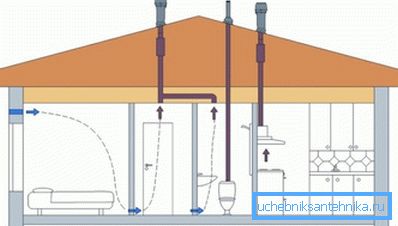
Tip: for the winter it is recommended to warm the pipe to avoid possible icing of its edges.
- Conclusion for sewage ventilation should be designed even during the construction of the building, but if it is absent, the installation of the structure in the wall of the building horizontally is allowed.
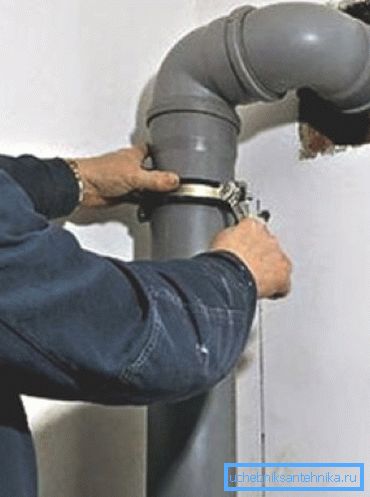
If the situation is such that the installation of the funnel pipes is impossible, then you can choose a less effective and reliable, but to some extent replacing them vacuum valve.
Alternative
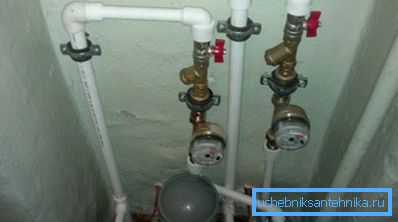
The vacuum unit is mounted directly on the exit of the riser and works as follows:
| Situation | Valve action |
| There is a discharge of air located in the riser | The device opens, letting in air flow from the house into the sewer system |
| The vacuum is extinguished and the pressure levels off. | A special spring is activated, and the hole is blocked, while the rubber seals prevent unpleasant odors from leaking into the room. |
An important disadvantage of using a valve is its relative fragility as a result of:
- The weakening of the spring, resulting in smells from the sewer system will have time to penetrate into the building.
- Loss of elasticity of the rubber seals, after which they will cease to fit properly.
- The cover is skewed due to prolonged operation and many other possible mechanical damages.
Conclusion
Installing a ventilation system for your autonomous sewage system will solve all possible problems associated with the penetration of waste odors into the house. Unfortunately, the water lock alone does not give an absolute guarantee, since the water can escape from it as a result of air discharge in the pipes. By following the above rules and recommendations, you will exclude the described problem for yourself and your loved ones for decades.
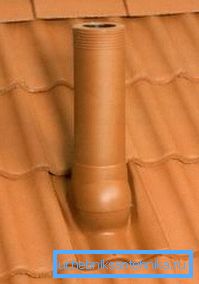
The video in this article will provide you with additional information directly related to the materials presented.
Take care of comfort in your country house.